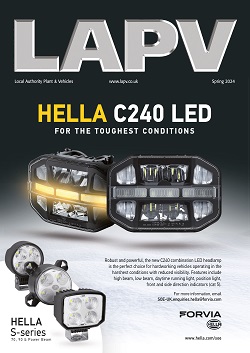Li-ion battery specialist Nexeon and its partners have been awarded £7 million from the Innovate UK fund to develop better silicon materials for batteries with significantly greater range. The work is an essential step to achieving electric vehicles (EVs) with a range of more than 400 miles.
The project ' named SUNRISE after Synthomer, UCL & Nexeon's Rapid Improvement in the Storage of Energy ' will develop better battery materials based on silicon as a replacement for carbon in the cell anode and optimise cell designs for automotive application.
Innovate UK will fund the bulk of the £10 million project as part of the Faraday Battery Challenge. SUNRISE will also enhance the UK's position as a centre of excellence for battery development and support the materials manufacturing supply chain in the UK.
Nexeon will lead the silicon material development and scale-up stages of the SUNRISE project, while leading polymer company Synthomer will lead the development of polymer binders optimised to work with silicon to ensure anode-binder cohesion during a lifetime of charges. Nexeon and University College London (UCL) will jointly lead the work on material characterisation and cell performance.
Silicon is currently being adopted as a partial (upto 10%) replacement for carbon in battery anodes but problems caused by expansion when the cells are charged and discharged remain a hurdle. Project SUNRISE aims to address the issue to allow more silicon to be used, further increasing the amount of energy that can be stored in a battery.
Innovative silicon anode material with a polymer binder represents a 'drop-in' replacement for current graphite anode systems. Lower cost and better performance power sources will reduce the time required for EVs to achieve mass adoption.
'The biggest problems facing EVs ' range anxiety, cost, charge time or charging station availability ' are almost all related to limitations of the batteries,' said Nexeon chief executive officer Dr Scott Brown.
'Silicon anodes are now well established on the technology road maps of major automotive OEMs and cell makers and Nexeon has received support from UK and global OEMs, several of whom will be involved in this project as it develops'

